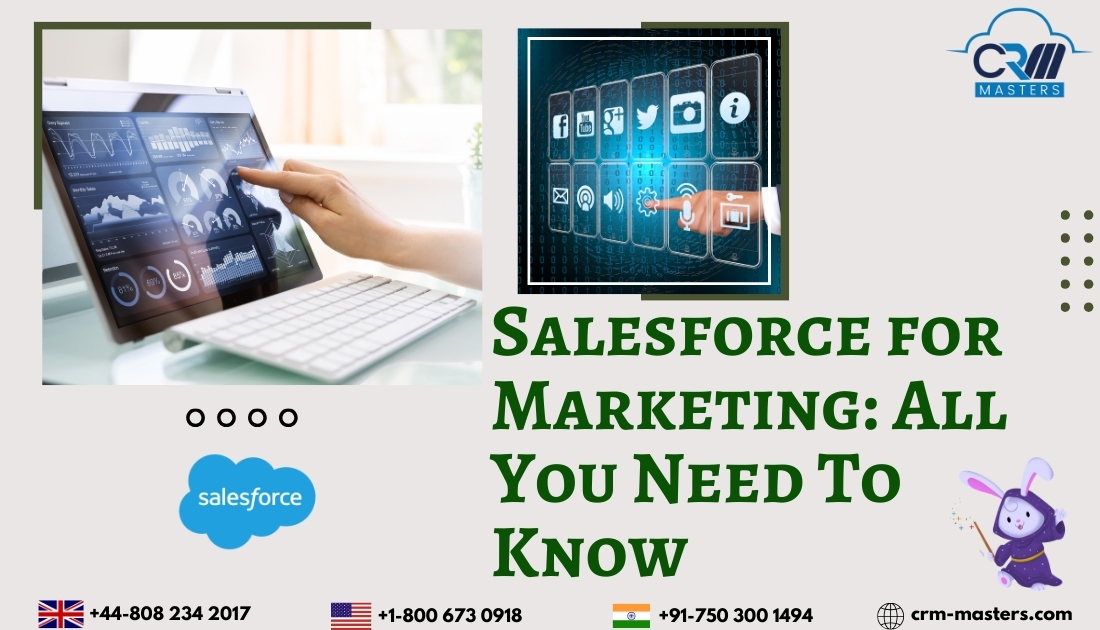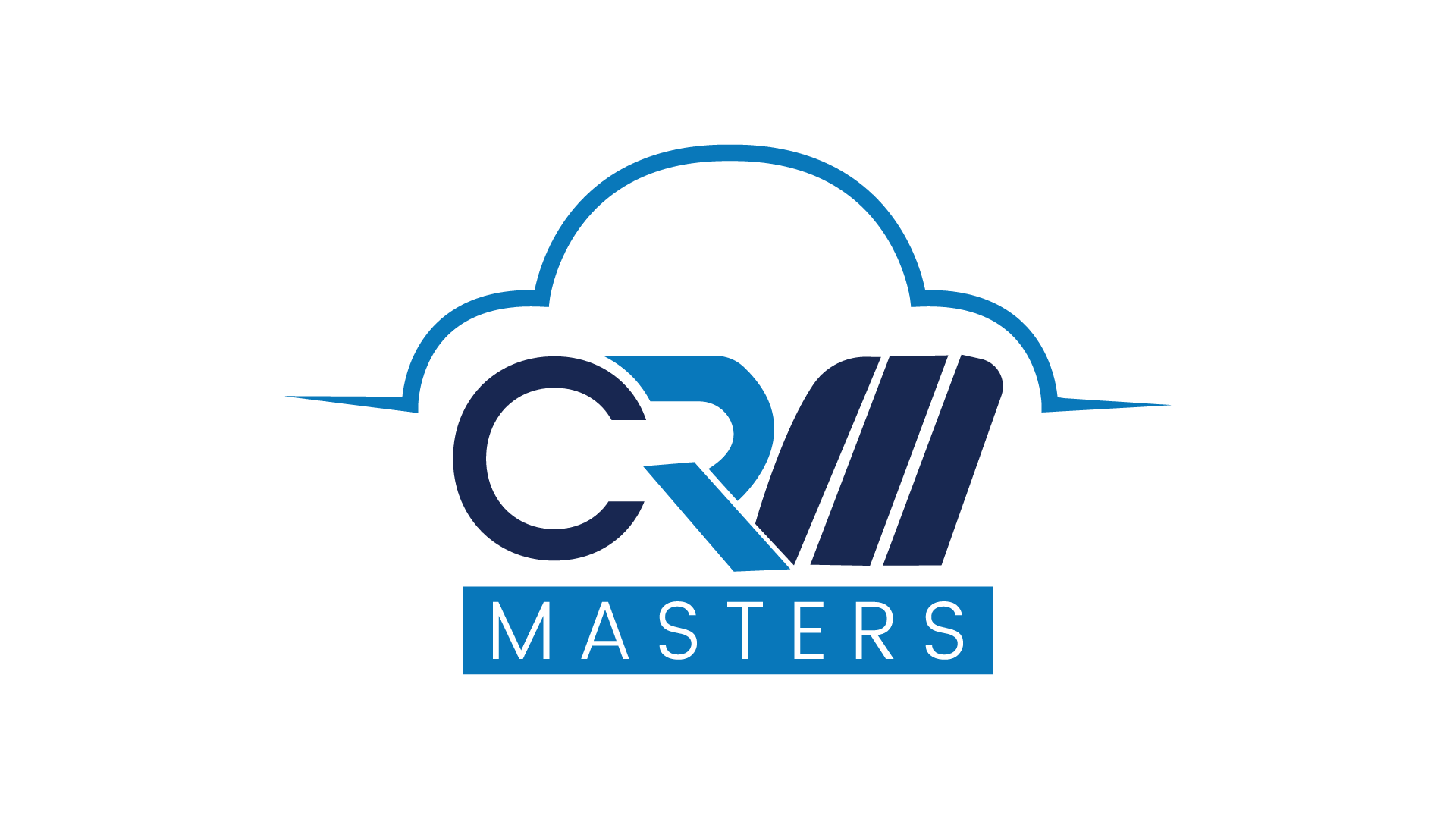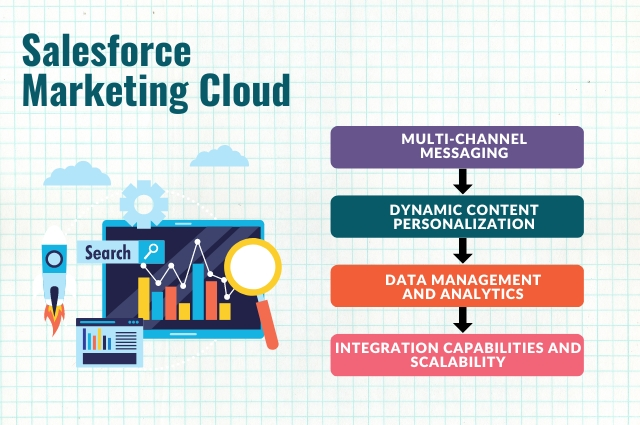
Salesforce for Marketing: All You Need To Know
Innovations in technology, shifting consumer behavior, and a relentless pursuit of excellence drive digital marketing quickly. As marketing teams struggle with an expanding array of channels, data sources, and customer touchpoints, the need for a unified, scalable, and flexible solution has never been more critical. Salesforce Marketing Cloud, a comprehensive marketing automation platform, offers a holistic approach to customer engagement, campaign management, and data analytics, positioning organizations to thrive in a competitive marketplace.
This blog will help you understand Salesforce Marketing Cloud and its role in shaping the future of digital marketing.
A) Multi-Channel Messaging
Salesforce Marketing Cloud empowers businesses to deliver personalized and relevant messaging across multiple channels, managing seamless customer interactions and enhancing engagement.
User Journey: Define and visualize customer journeys, segment audiences, and automate messaging workflows based on user behavior, preferences, and interactions.
Channel Optimization: Dynamically select and prioritize communication channels, such as email, SMS, social media, and mobile applications, based on campaign objectives, audience preferences, and real-time insights.
Enhanced Engagement: Personalized and timely messaging fosters stronger customer relationships, drives conversion, and increases customer loyalty.
Operational Efficiency: Automated multi-channel workflows streamline campaign execution, minimize manual interventions, and enhance marketing team productivity.
B) Dynamic Content Personalization
Salesforce Marketing Cloud enables marketers to create dynamic and personalized content experiences tailored to individual recipient preferences, behaviors, and interests.
Content Personalization: Leverage data-driven insights and segmentation to customize email content, images, offers, and calls-to-action, enhancing relevance and resonance.
A/B Testing: Experiment with content variations, messaging strategies, and creative elements to optimize campaign performance, identify best practices, and drive continuous improvement.
Higher Conversion Rates: Relevant and personalized content resonates with audiences, increases engagement, and drives higher conversion rates.
Resource Optimization: Streamlined content creation processes, reduced manual interventions, and enhanced targeting capabilities enable marketing teams to focus on strategic initiatives and value-added activities.
C) Data Management and Analytics
Salesforce Marketing Cloud offers robust data management and analytics capabilities, empowering organizations to derive actionable insights, optimize campaign performance, and drive informed decision-making.
Data Integration: Consolidate and centralize customer data from various sources, such as CRM systems, e-commerce platforms, and third-party applications, ensuring data accuracy and consistency.
Advanced Analytics: Leverage pre-built dashboards, real-time reporting, and predictive analytics to monitor campaign performance, track key performance indicators, and identify trends, patterns, and opportunities.
Data-Driven Decision Making: Access to comprehensive data sets, advanced analytics tools, and actionable insights enables organizations to make informed decisions, allocate resources effectively, and optimize marketing investments.
Performance Optimization: Continuous monitoring, analyzing, and optimizing campaign performance foster continuous improvement, agility, and responsiveness to evolving market dynamics and customer preferences.
D) Integration Capabilities and Scalability
Salesforce Marketing Cloud offers seamless integration capabilities, enabling organizations to connect, extend, and enhance their existing marketing technology, ensuring scalability.
Platform Integration: Integrate Salesforce Marketing Cloud with Salesforce Sales Cloud, service applications, and other CRM systems, ensuring data synchronization, process alignment, and cross-functional collaboration.
Customer Data: Integrated data sources, applications, and systems enable organizations to maintain a unified, 360-degree view of customers, fostering personalized, consistent, and contextually relevant experiences across all touchpoints.
Future-Proofing: Scalable architectures, extensible platforms, and powerful integration capabilities are key to analyzing market trends and keeping customer expectations fulfilled to ensure long-term success.
Why Should Businesses Use Salesforce for Marketing?
Using Salesforce for marketing is like having a powerful tool that helps businesses connect with customers in a more personalized way. It simplifies digital marketing by offering a platform that can adapt and grow with the business needs. Businesses can confidently navigate the digital world with features like personalized messaging, managing data efficiently, and integrating different channels.
This leads to better engagement with customers and their loyalty. Ultimately, it helps the business grow in a competitive and fast-paced market.
How Can We Help?
CRM Masters, as a Salesforce Implementation Partner, specializes in implementing and optimizing Salesforce Marketing Cloud solutions for organizations across industries. With a deep understanding of marketing automation, data management, and customer engagement best practices, our team of certified experts is committed to empowering businesses to unlock the full potential of Salesforce Marketing Cloud, drive strategic growth, and deliver exceptional customer experiences.
If you want to elevate your marketing game, streamline campaign management, and drive measurable results, contact us today for a personalized consultation and customized solution roadmap.






















1 comment on “Salesforce for Marketing”